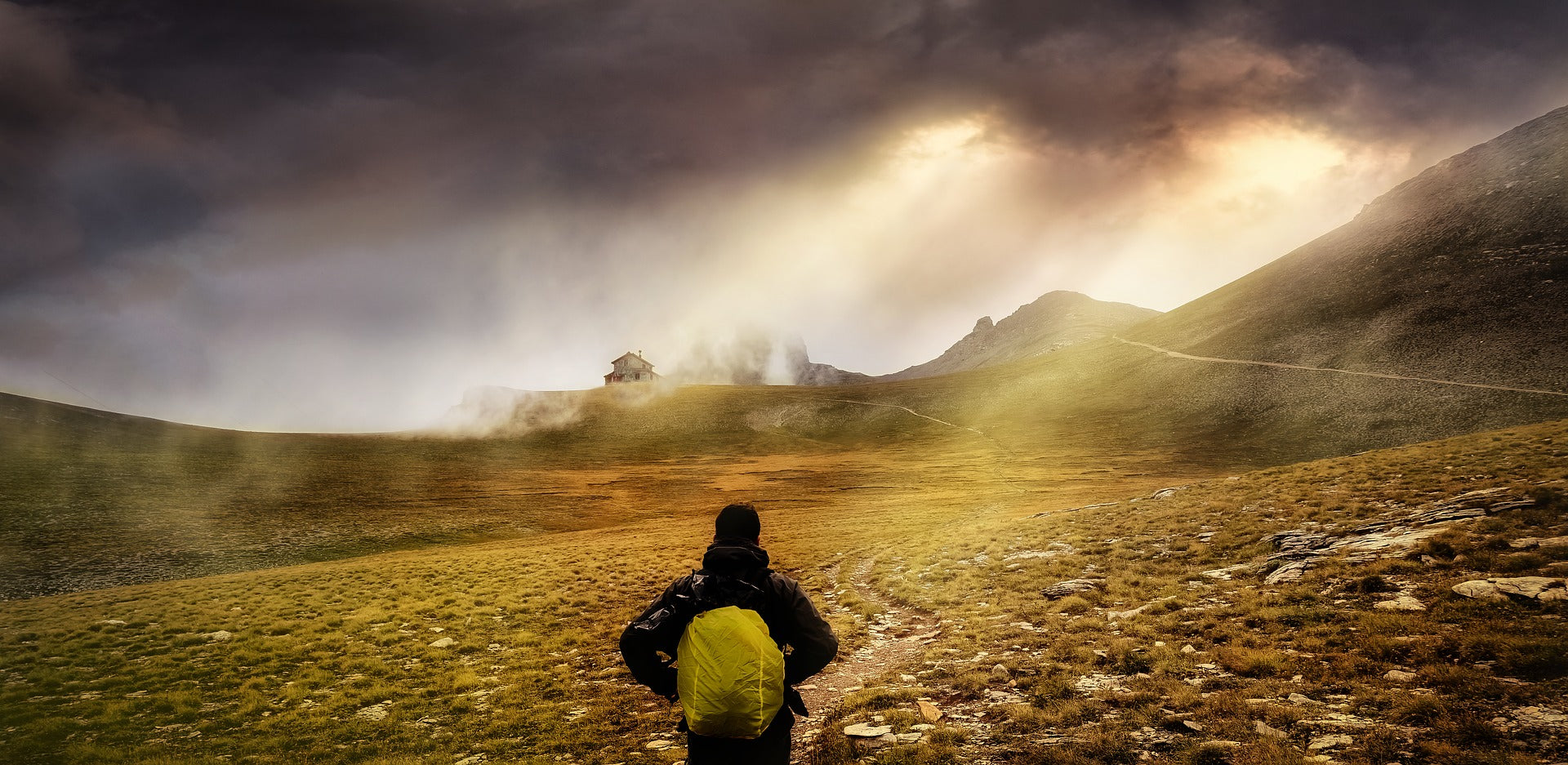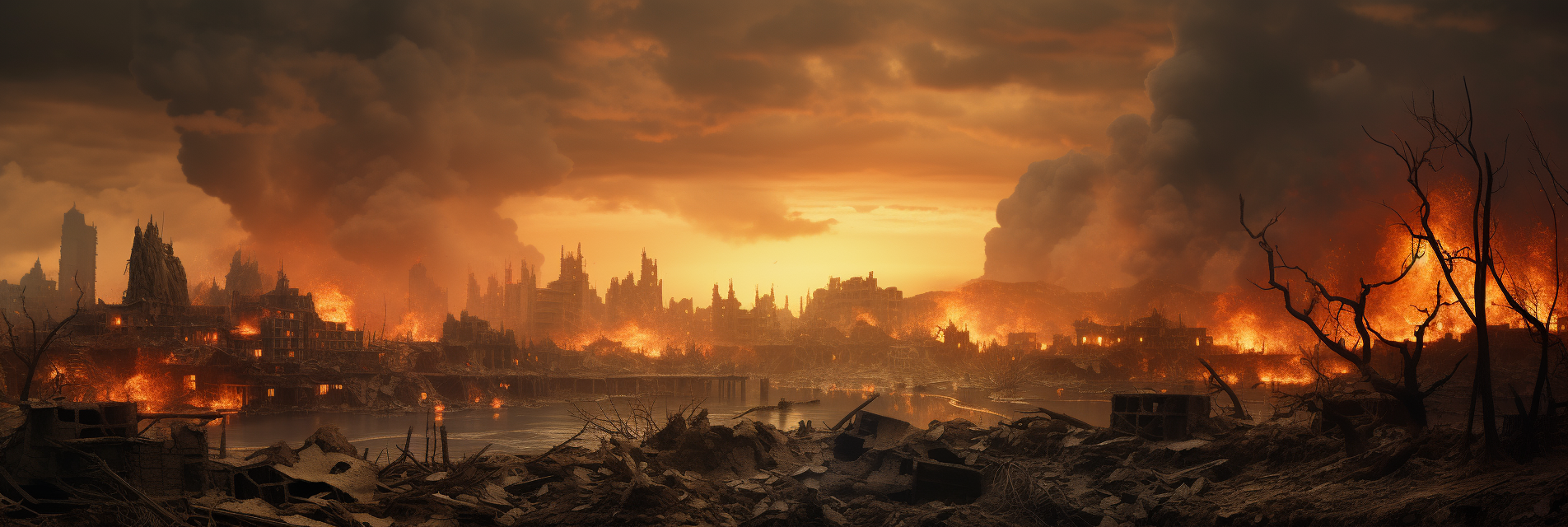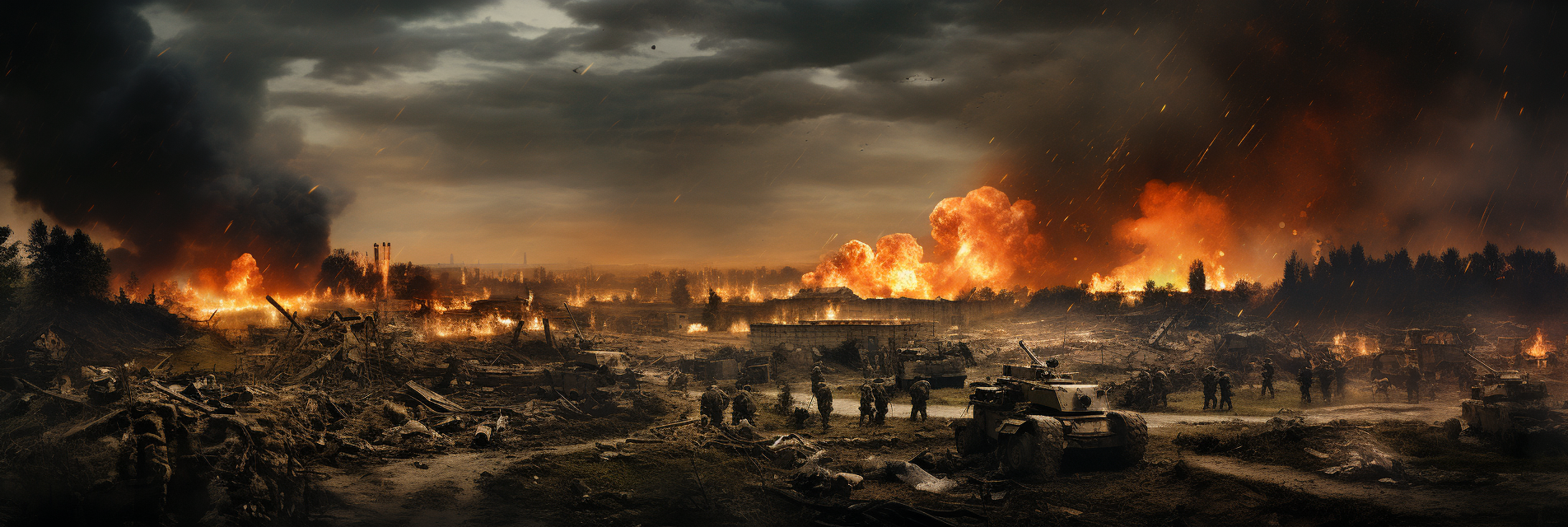
The 90 Most Valuable Items to Trade Following a Societal Collapse
The 90 Most Valuable Items to Trade Following a Societal Collapse
The best way to assess the value of items in the event of the collapse of society is to look at similar events in the past and attempt to understand the implications regarding how priorities change and changing need states radically alter demand and supply.
The following list includes many historically valuable items that have been used as currency or traded in times of crisis:
Note that this list is not in any particular order, but certain items are more critical for survival than others.
-
Gold - A highly sought-after precious metal that has been used as currency for thousands of years due to its rarity, durability, and intrinsic value.
-
Silver - Another precious metal that has many industrial uses in addition to being used as a form of currency.
-
Platinum - A valuable metal with a variety of industrial uses, including in the production of catalytic converters for cars.
-
Precious gems - Rare and beautiful stones that have been treasured for their aesthetic appeal and symbolic value for centuries.
-
Canned foods - long life food that can provide essential nutrients years after initial manufacture.
-
Freeze dried food - lightweight, compact and portable food with extremely long shelf lives of up to 30 years.
-
Water filters or water purification tablets - methods of ensuring access to clean and safe drinking water.
-
Copper - An important industrial metal that is used in a wide range of applications, from electrical wiring to plumbing.
-
Aluminium - A lightweight, corrosion-resistant metal that has many industrial uses, including in the production of airplanes and cars.
-
Iron - A strong, durable metal that has been used for centuries in construction, tools, and weapons.
-
Steel - A versatile metal that is widely used in construction, manufacturing, and transportation due to its strength, durability, and ability to be easily shaped.
-
Nickel - A hard, silvery-white metal that has many industrial uses, including in the production of stainless steel and batteries.
-
Petrol - A refined product of crude oil that is used as fuel for cars, trucks, and other vehicles.
-
Diesel - A type of fuel that is used in diesel engines, which are commonly used in trucks and other heavy-duty vehicles.
-
Natural gas - A clean-burning fossil fuel that is used to produce electricity and heat buildings.
-
Coal - A fossil fuel that has been used for centuries to generate electricity and heat buildings.
-
Wood - A renewable resource that is used for heating, cooking, and building.
-
Charcoal - A form of carbon that is produced by burning wood in the absence of oxygen, which is used as a fuel and in the production of steel.
-
Water - A basic necessity for human survival that is essential for drinking, cooking, and hygiene.
-
Salt - A mineral that has been used for centuries as a seasoning and food preservative.
-
Sugar - A sweetener that is used in cooking and baking.
-
Coffee - A popular beverage that is consumed around the world and has a high value due to its stimulating effects and rich flavour.
-
Tea - Another popular beverage that is consumed around the world and has many health benefits.
-
Cocoa - A key ingredient in chocolate that is also used in a variety of desserts and beverages.
-
Spices - Spices such as cinnamon, pepper, cloves, and nutmeg have been traded for centuries and have a high value due to their rarity and ability to add flavour and aroma to food.
-
Tobacco - A plant that is dried and smoked for recreational and medicinal purposes.
-
Batteries - Used for providing power to a wide range of portable devices from torches to handheld tools and communication devices.
-
Wine - A type of alcoholic beverage that is made from fermented grapes and has been enjoyed for centuries due to its complex flavours and health benefits.
-
Whiskey - A distilled spirit that is made from fermented grains and has a complex flavour profile and high alcohol content.
-
Vodka - A distilled spirit that is made from grains or potatoes and is known for its purity and neutrality of flavour.
-
Brandy - A distilled spirit that is made from wine and has a high alcohol content and complex flavour profile.
-
Rum - A distilled spirit that is made from fermented sugarcane or molasses and has a unique flavour profile and cultural significance in many parts of the world.
-
Gin - A distilled spirit that is flavoured with botanicals, particularly juniper berries, and has a distinctive flavour profile that is enjoyed in a variety of cocktails.
-
Medications - A variety of pharmaceutical products that are used to treat and prevent illness and disease.
-
Antibiotics - Medications that are used to treat bacterial infections and have revolutionized the treatment of many illnesses and diseases.
-
Painkillers - Medications that are used to alleviate pain and discomfort caused by a variety of conditions, injuries, and surgeries.
-
Vitamins - Essential nutrients that are necessary for maintaining good health and preventing disease.
-
Anti-inflammatory drugs - Medications that are used to reduce inflammation and swelling caused by a variety of conditions.
-
Antacids - Medications that are used to reduce acidity in the stomach and relieve symptoms of heartburn and indigestion.
-
Antihistamines - Medications that are used to relieve symptoms of allergies and allergic reactions.
-
Insulin - A hormone that is used to regulate blood sugar levels in people with diabetes.
-
Oxygen tanks - A device that stores and delivers oxygen for people with respiratory problems or in emergency situations.
-
Face masks - A protective covering that is worn over the nose and mouth to reduce the spread of disease and infection.
-
Protective clothing - Clothing that is designed to protect the wearer from harm, such as hazmat suits and body armour.
-
Guns - Weapons that use explosive force to fire projectiles, which can be used for hunting, self-defence, or military purposes.
-
Ammunition - The bullets or shells that are used in guns.
-
Knives - Tools that are used for cutting, slicing, and chopping.
-
Axes - Tools that are used for chopping wood and other materials.
-
Crossbow/Bows and arrows - Weapons that use tension to fire projectiles, which can be used for hunting or warfare.
-
Fishing gear - Equipment that is used for catching fish, including fishing rods, nets, and bait.
-
Hunting gear - Equipment that is used for hunting, including firearms, and hunting knives.
-
Animal traps - Devices that are used to capture animals for food or other purposes.
-
Seeds - The reproductive material of plants that is used for growing crops.
-
Fertilizer - Substances that are added to soil to promote plant growth.
-
Pesticides - Chemicals that are used to kill or control pests, such as insects and rodents.
-
Farming tools and equipment - Tools that are used for cultivating crops, including seed drills, cultivators and tractors.
-
Shovels - A tool used for digging, lifting, and moving loose materials such as soil, gravel, or snow.
-
Hoes - A tool used for cultivating and shaping soil.
-
Scythes - A tool used for cutting grass, weeds, or other vegetation.
-
Sickles - A tool used for harvesting grain crops, such as wheat or barley.
-
Wheelbarrows - A small hand-propelled vehicle with one wheel, designed for carrying small loads, such as dirt, gravel, or bricks.
-
Horses - A domesticated mammal used for transportation, ploughing fields, and other agricultural purposes.
-
Donkeys - A domesticated mammal used for transportation, particularly in arid regions.
-
Mules - A hybrid animal produced by crossing a male donkey with a female horse, used for transportation and agricultural purposes.
-
Cows - A domesticated mammal used for producing milk, meat, and leather.
-
Chickens - A domesticated bird used for producing eggs and meat.
-
Goats - A domesticated mammal used for producing milk, meat, and fibre.
-
Sheep - A domesticated mammal used for producing wool, meat, and milk.
-
Pigs - A domesticated mammal used for producing meat and other products.
-
Bees - Insects that produce honey and are important for pollinating plants.
-
Honey - A sweet food produced by bees from the nectar of flowers.
-
Wax - A natural substance produced by bees that is used in the production of candles and other products.
-
Leather - A material made from the skin of animals, commonly used for making shoes, clothing, and other products.
-
Fur - The soft, thick hair of certain mammals, commonly used for making warm clothing.
-
Wool - The soft, curly hair of sheep or other animals, commonly used for making clothing and blankets.
-
Silk - A luxurious fabric produced from the cocoons of silkworms.
-
Cotton - A soft, fluffy fibre that is grown on cotton plants and used for making clothing and other textiles.
-
Linen - A fabric made from the fibres of the flax plant, commonly used for making clothing and household textiles.
-
Hemp - A fibre that is derived from the cannabis plant, commonly used for making textiles, paper, and other products.
-
Robust Clothing - Garments worn on the body for warmth and protection.
-
Shoes - Footwear worn for protection and comfort.
-
Boots and Shoes - Covering a wide range of footwear designed for both indoor and outdoor comfort and protection.
-
Hats - Head coverings worn for warmth and protection.
-
Gloves - Hand coverings worn for warmth, protection, and dexterity.
-
Blankets - A large piece of cloth used for warmth and comfort, commonly used on beds and couches.
-
Sleeping bags - A portable bed that consists of a large insulated bag, commonly used for camping and outdoor activities, but more critical in the event of power outages.
-
Tents - A portable shelter made of fabric or other materials, commonly used for camping and outdoor activities.
-
Lumber - Wood that has been cut and processed for use in construction.
-
Bricks - Blocks of baked clay or other materials used for building walls and other structures.
-
Cement - A binder used in construction that hardens and binds other materials together - useful for building permanent structures and shelters.
It's important to note that the value of these items can vary depending on the specific circumstances and needs of a given situation. In a doomsday scenario, items that are essential for survival, such as food, water, and medication, would likely be the most valuable. Additionally, items that have practical applications, such as farming tools, building materials, and protective clothing, would be highly valuable for their ability to enable individuals and communities to sustain themselves in the long term. Items that have cultural or symbolic significance, such as precious gems or tobacco, may also have value as tradeable goods. Finally many metals and construction materials would increase in value as society begins to re-establish itself once more.
Additional visitor suggestions:
- Bicycle/Tyre Repair Kit (thanks Botan)
- A Heavy Duty Cart (thanks Botan)
- Toilet Paper (thanks Rob) - Rob's suggestion draws attention to the fact that certain luxuries have become necessities of modern life, and will naturally retain value, albeit that there are alternative solutions.
Suggested Articles
Top 10 Skills to Help You Survive in a Post-Apocalyptic World
Everyone has their own ideas of what the world will look like after a catastrophic event. Some believe that society ...
How might Climate Change harm our our society?
The potential impact of climate change is one that has gained increasing attention and urgency in recent years - in f...
The Future of Prepping in the UK: How Climate Change and Global Instability Impact Preparedness
In the ever-evolving landscape of global and environmental challenges, the UK faces a unique set of circumstances whe...





As Botan said, none of the items on the list are much use if you don’t have the skills or ability to use them. Enrol in a survival adventure course and try wild camping ( currently only legal in Scotland ) asap to prepare as best as possible. If you have to evacuate from a city, prioritize the most essential items. Gold bars are heavy and to the best of my knowledge inedible lol Water purification tablets on the other hand are cheap, lightweight and take up very little space. Generally they have roughly 5 year shelf-life. Again, referring to Dian’s comment if or more likely when the societal collapse happens, training and survival knowledge is going to be as vital as any item you might think you need. I’m 58, with arthritic knees, but I gew up in very rural Scotland. I have basic survival knowledge and started acquiring my survival gear when Putin launched his full scale invasion of Ukraine. If all else fails put on the The Clash and Listen to “London Calling”
Mark R on
Hi Diane, for advice for senior citizens, feel free to visit the following article:
foodbunker.co.uk/blogs/prepping/advice-for-senior-citizens-what-to-do-in-advance-of-a-looming-societal-collapse
We hope you find it useful!
Admin on
Excellent information here, however, nobody ever says anything about us senior folks. It seems like we must bite the bullet so to speak if and/or when it happens. Personally, I don’t see any kind of solutions either. Any suggestions other than surviving in place. Thank you.
Diane on
Definitely not in order of importance.
Example – 3 men/people are walking across a desert.
One has a gold bar, another a canteen of water, the third a loaded gun.
Who is the rich man?
Add a bicycle and tire repair kit.
A heavy duty cart.
BTW – you need the skills to use any of the tools or items listed and the ability to travel with them if needed – you don’t just pick up an item and know how to use it.
If it comes to collapse and you are in a city get out or your screwed.
In the suburbs be ready for the city people arrival.
Rural just a little more time.
Don’t forget terrain maps of where you are and where you want to go and know how to use them and a compass.
And remember main roads will be congested and loaded with “survival of the fittest people” but then rural roads won’t be much better.
Botan on